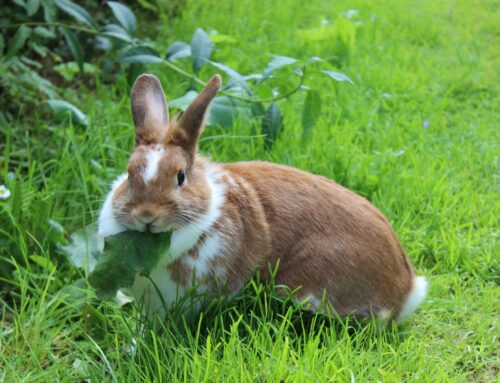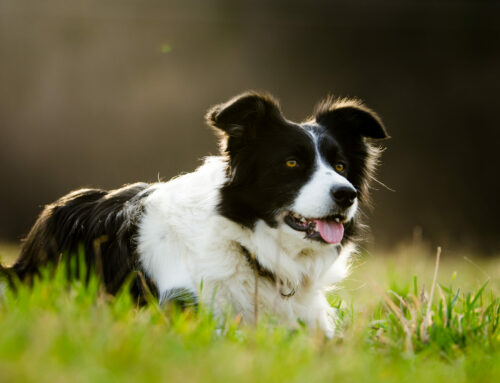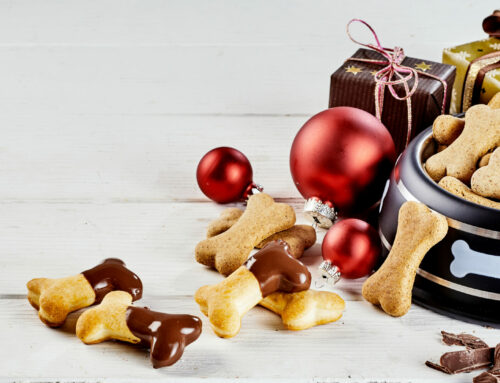With Christmas rapidly approaching, it’s important that we’re all very aware of some of the risks to our pets at this time of year. Sadly, many dogs and cats come to grief over the festive period as a result of eating human foods, consuming ornaments or plants, or injuring themselves on decorations. In this blog, we’re going to look at how to keep your pets safe from harm over the holidays!
Winter Worries
One big thing to watch out for is antifreezes – most of which contain ethylene glycol. This is a very sweet-tasting substance, and dogs and cats will happily lick it up. The effects are similar to drunkenness; however, 24-36 hours after drinking it, kidney failure usually results, and is often fatal.
> Keep antifreeze away from pets, in sealed containers.
> Wash away any spills on roads, drives or garages with plenty of water.
Another thing to remember is that at this time of year, many people have colds. Unfortunately, most cold-and-flu remedies contain paracetamol, which is dangerous for dogs and lethal to cats.
> Never leave human medicines around where pets can get at them.
> Never give human medicines to pets unless one of our vets has told you to!
Festive Foods
A lot of Christmas favourites are, sadly, not good for our pets’ health, and some can be lethally poisonous. In particular…
Chocolate – contains theobromine, a chemical which is harmless to humans but causes stomach upsets and accelerated heartbeats in dogs and cats.
> Dogs often love chocolate but NEVER allow them any!
> You can get dog-safe chocolate, but better to stick to dog treats so they don’t get a taste for the real stuff.
> If your pet has eaten chocolate, ring us immediately – they may need their stomach pumped.
Nuts – salted nuts can cause salt poisoning (vomiting, diarrhoea, wobbliness, seizures, coma), and Macademia Nuts can cause wobbliness and multiple organ failure in dogs.
> Keep nut selections away from pets – even cats may well try and lick the salt off.
Grapes, raisins and currants – these can cause kidney failure, even if in very small quantities (the record is 3 raisins).
> No mince pies, Christmas Cake or Christmas Pudding for dogs or cats!
Onions, garlic, shallots – these are members of the Alium family, and can cause anaemia by damaging red blood cells.
> No sage-and-onion stuffing either…
Turkey and gravy – no, it isn’t poisonous (fortunately!), but cooked poultry bones can cause severe damage to the intestines if the split while being eaten. In addition, large quantities of rich, fatty food can trigger stomach upsets, diarrhoea, and even pancreatitis.
> So special turkey dinner treats only in moderation, and no bones!
Poisonous Plants
Fortunately, there aren’t many really toxic plants brought in at this time of year; however, Mistletoe, Holly, Ivy and Poinsettia can all cause nasty stomach upsets if eaten. Lilies are a different kettle of fish – the pollen is lethally toxic to cats, and should be avoided at all costs.
> Keep plants out of paws’ reach.
> Don’t keep lilies and cats in the same house!
Dangerous Decorations
Any glass ornament is a disaster waiting to happen – cats bat at it, dogs nuzzle it, until it falls on the floor and shatters – into sharp shards which lacerate paws and noses. Hard plastic ornaments can be almost as bad!
Dogs are also prone to swallowing ornaments; once ingested, they tend to block the bowel, needing emergency surgery. Even worse is tinsel which cats, especially, are irresistibly attracted to – but when played with becomes trapped around paws, claws, and tongues. If swallowed, it behaves as a “linear foreign body” and acts like cheese-wire on the intestines.
Festive candles are tempting to cats (and sometimes dogs), and can result in burned paws. On rare occasions, cats may try to jump over the flames, potentially resulting in igniting their fur.
Electric fairy lights are a common cause of electrocution, typically when an enthusiastic pet gnaws or chews through the wires. In most cases, this results in electrical burns to the mouth, but in severe cases may stop the heart.
> All decorations and ornaments should be kept well out of pet grabbing-range…
Treacherous Trees
Yes, the Christmas Tree itself can be dangerous – usually to curious cats who try and climb it. The result tends to be a collapsed tree or a cat falling from a height – neither of which is good for the people, pets and presents underneath!
> Pets should be closely supervised around the tree, and only have access when there are people to put a stop to any antics before they get out of hand!
We’d like to wish you and all your animals a very Merry Christmas and a peaceful New Year.
If your pet becomes ill or is injured over the Christmas period, please don’t hesitate to call us: we’re proud to provide emergency services 24 hours a day, 7 days a week. We always have a vet on call to give you advice and reassurance, even if they don’t need to see your pet.



